Malachowsky Hall is the centralized hub for data-centric academic and research programs from the Herbert Wertheim College of Engineering, the College of Medicine, and the College of Pharmacy. Hundreds of faculty and thousands of students from these and other colleges work together to leverage data analytics and AI to improve health; engineer the next generation of robotics, unmanned vehicles and communication systems; and ensure AI serves all people ethically and equitably.
Cybersecurity
The University of Florida offers one of the most comprehensive cybersecurity research programs in the country. With expertise in all aspects of cybersecurity, including hardware, software, network, mobile, big data, Internet of things (IoT), applied crypto, social sciences, law, and more, UF is uniquely equipped to help protect governments, businesses and individuals from cyber threats and to create the next generation of cybersecurity professionals.
Here are some examples of UF cybersecurity research and training:
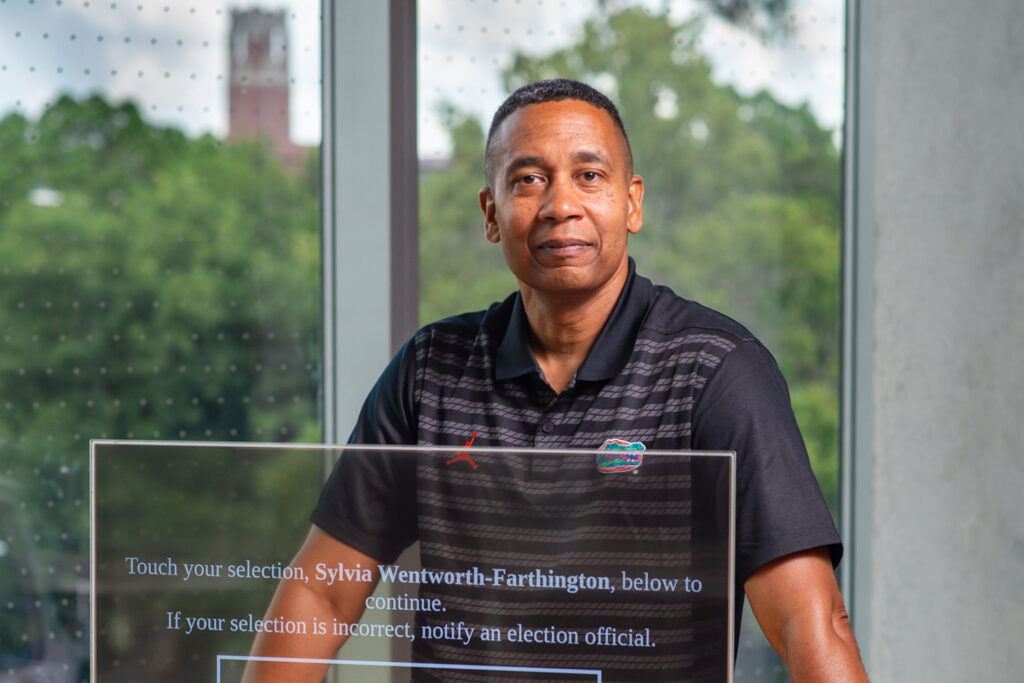
Juan Gilbert, chair of UF’s Department of Computer & Information Science and Engineering, was recently named to the National Science Board, an independent body of advisers to both the president and Congress on science, technology and math policy. Gilbert’s research focuses on projects that are at the intersection of people, technology, and society, such as a universal voting system that makes voting more reliable and accessible for everyone
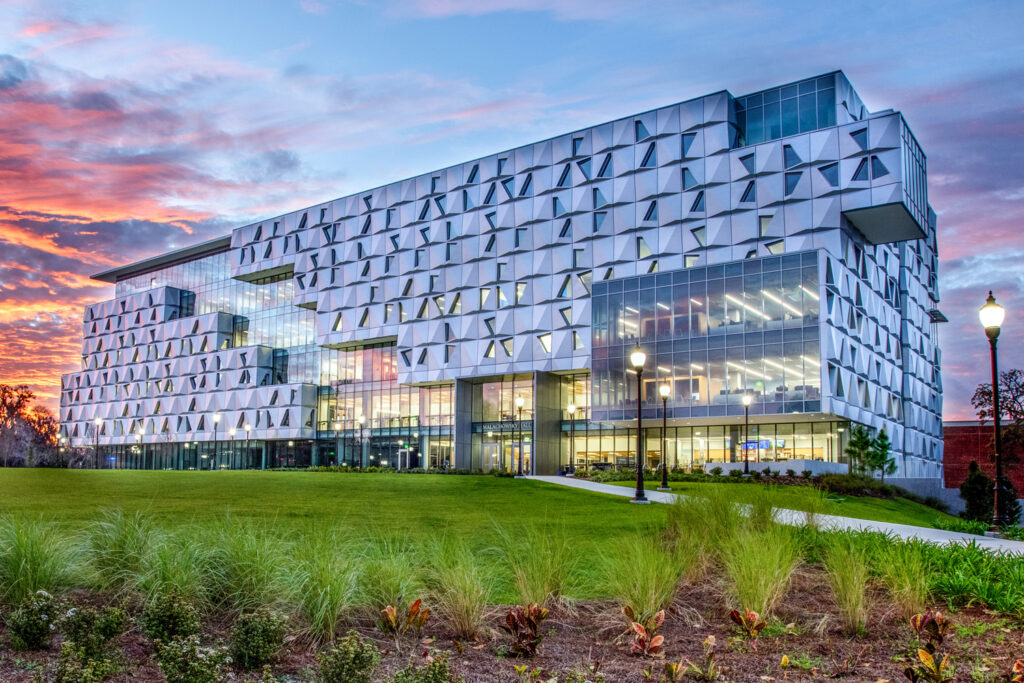
A team led by Sara Rampazzi, an assistant professor in the Department Of Computer & Information Science and Engineering, is using a $759,000 award from the Office of Naval Research to develop a software defense system for underwater data centers. This is a unique collaboration between the UF Center for Coastal Solutions and the Florida Institute for Cybersecurity Research.

Psychology Professor Natalie Ebner and Post-Doctoral Researcher Didem Pehlivanoglu are studying ways to prevent older Americans from being scammed. In 2021, there were at least 90,000 older victims of fraud, according to the FBI. When older adults experience financial fraud, those losses can have devastating consequences since they have limited time to recoup – dramatically reducing their independence, health and well-being.
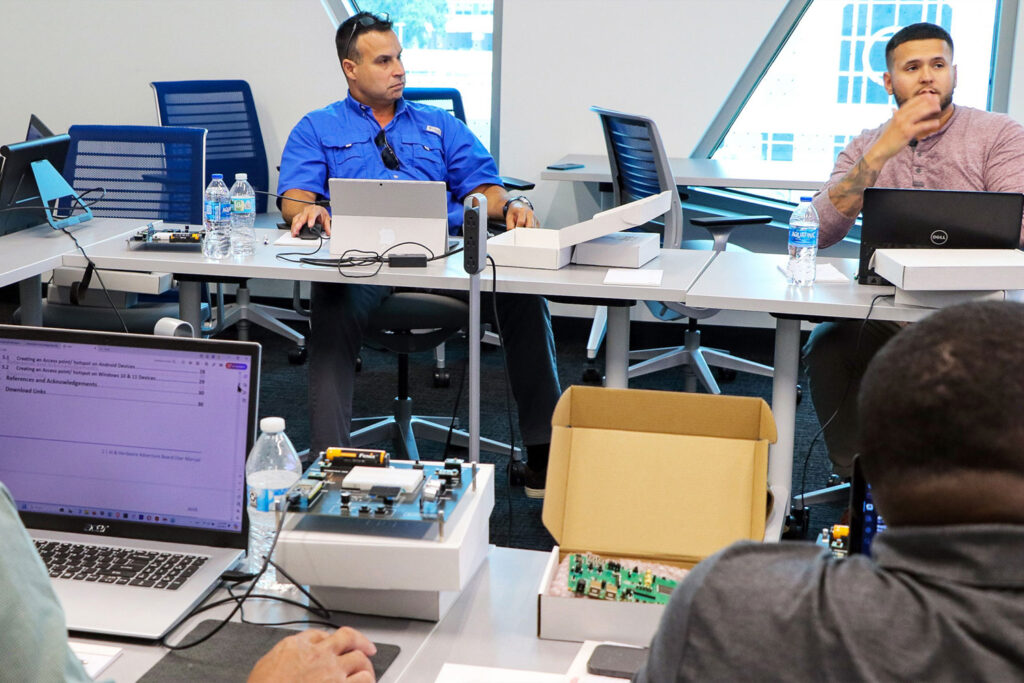
A $1 million National Science Foundation grant is enabling Professor Sandeep Ray of the Department of Electrical and Computer Engineering, and Assistant Professor Wanli Xing of the College of Education to teach U.S. veterans how to hack into computer systems to prepare them for jobs in the growing cybersecurity field.
Semiconductors
The federal government is investing billions of dollars to bring semiconductor manufacturing back to the United States and to advance domestic research in chip technology. Dozens of faculty from the University of Florida’s Herbert Wertheim College of Engineering, the College of Liberal Arts and Sciences and other parts of the university are part of an effort by Florida academic institutions, industry and state government to advance cutting-edge semiconductor technologies and create thousands of new, high-wage jobs in the field.
Here are some of examples of UF semiconductor research:
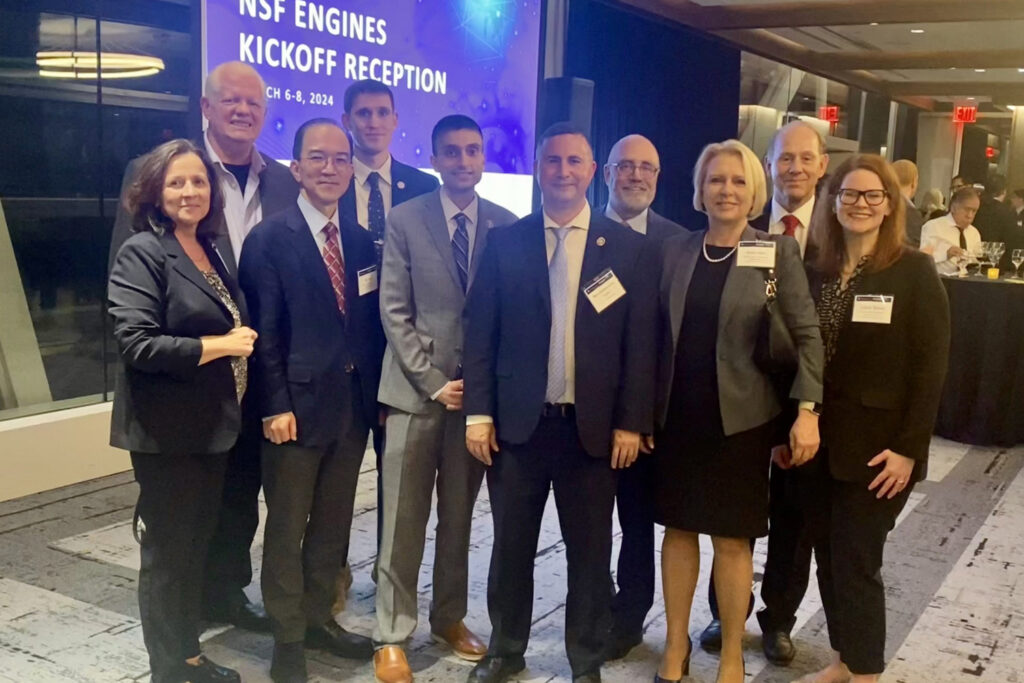
A team of 10 College of Engineering faculty led by Yong-Kyu Yoon, a professor in the Department of Electrical and Computer Engineering (ECE) are focusing on semiconductor packaging, manufacturing and security as part of a $15 million National Science Foundation Regional Innovation Engine. The project — led by BRIDG, a Florida-based, not-for-profit, public-private partnership — is building a collaborative ecosystem of researchers, manufacturers, suppliers, workforce and economic development experts to grow the Florida-based chip industry.

Hamed Dalir, an associate professor in ECE, is spearheading a project to use immersion cooling of servers to increase energy efficiency in data centers. Immersion cooling uses liquids that transfer heat but not electricity. Midas Immersion Cooling, a leading innovator in immersion cooling solutions, is providing over $200,000 in advanced immersion cooling equipment for the project.

A team of UF engineers has won a $6.6 million grant from DARPA to develop high-temperature sensors crucial for industrial, military and space applications. With expertise in aerodynamics, materials science and high-temperature physics, the UF team is uniquely equipped to address the need for sensors that can operate at temperatures of 800 degrees or more.
AI in Medicine
At UF Health clinician-scientists are developing AI-enabled systems to guide surgical and acute care decision-making, data scientists are pursuing data-driven medicine and basic scientists are advancing AI-enhanced methods for analyzing molecular data — all to answer questions that will drive us to improve health outcomes and patient care.
Here are some examples of how UF Health is using AI to advance medicine:
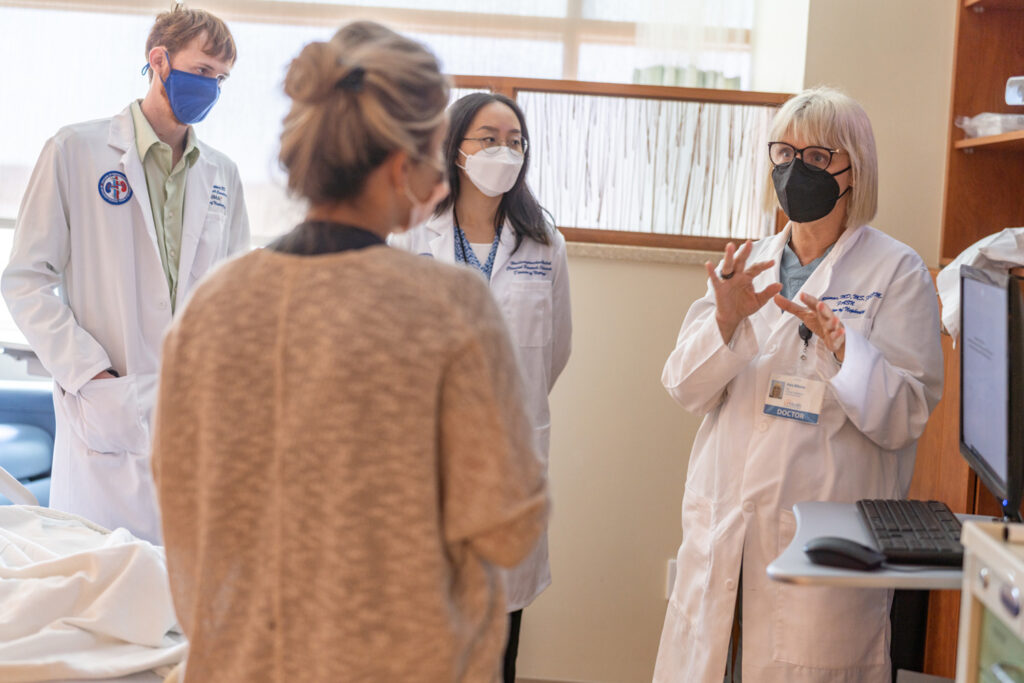
A team led by Azra Bihorac and Parisa Rashidi, co-directors of UF’s Intelligent Critical Care Center, is part of a $23 million project funded by the National Institutes of Health to gather anonymous data from 100,000 critically ill patients at university hospitals around the country and use it develop algorithms that synthesize vital sign data, giving doctors clearer, timelier and more accurate insight into a patient’s prognosis and likely medical outcomes and helping to accelerate and focus decision-making during the crucial, early stages of hospitalization.
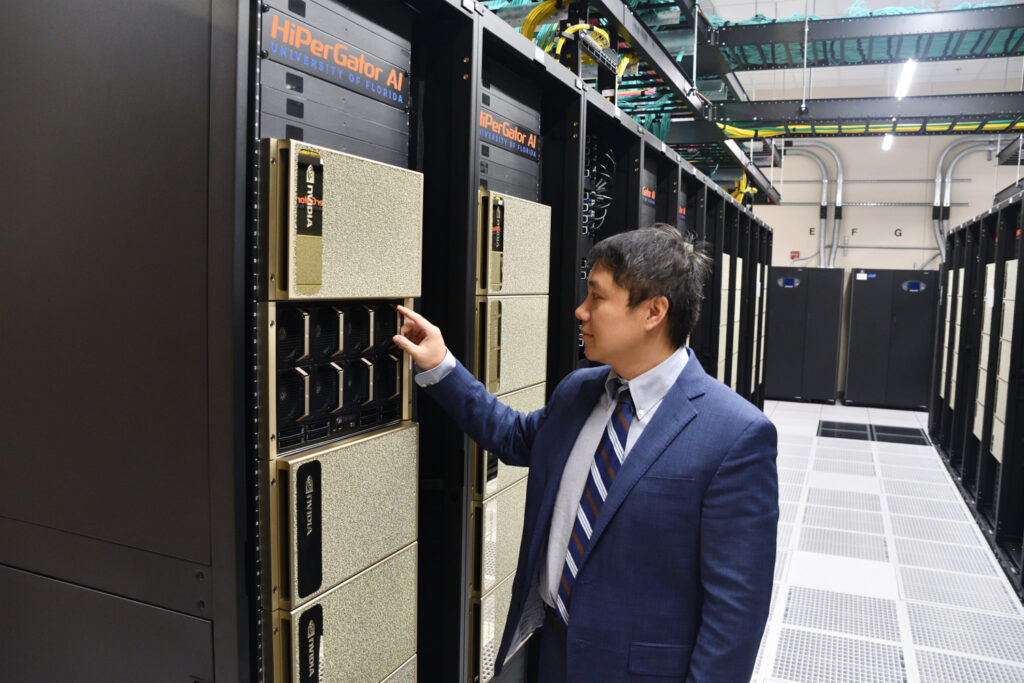
Yonghui Wu, an associate professor in the Department of Health Outcomes and Biomedical Informatics, is leading a 3-year project funded with $1 million from the Patient-Centered Outcomes Research Institute to improve how quickly and fairly AI can learn from one healthcare system and use this knowledge to solve other complicated tasks at different healthcare systems. For example, by learning to recognize disease symptoms from millions of patients in Florida, computers could accurately tell if a patient receiving routine care in New York has dementia.
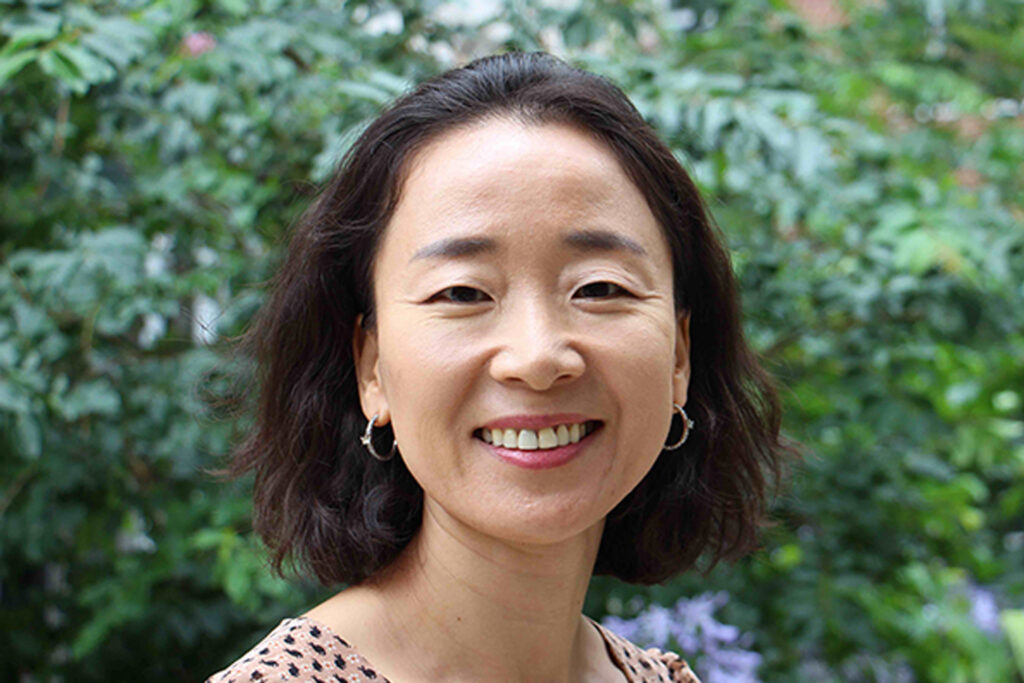
Haesuk Park, an associate professor in the College of Pharmacy’s Department of Pharmaceutical Outcomes and Policy, is using a $3.3 million grant from the National Institute on Drug Abuse to develop an innovative, artificial intelligence-driven hepatitis C screening tool. The tool will use innovative prediction algorithms to assist physicians in identify high-risk patients in emergency departments.
HiPerGator
From detecting crop diseases and pests to analyzing decades of hand-written doctor’s notes and medical records, the University of Florida’s HiPerGator supercomputer is helping researchers push the limits of science. Built with $50 million in support from UF alumnus Chris Malachowsky and NVIDIA, which he co-founded, the machine is one of the fastest AI supercomputers in academia. The machine also helped kickstart UF’s larger push to integrate AI across all areas of university research, teaching and operations. Researchers from universities around Florida and across the Southeast are using HiPerGator to work on projects spanning agriculture, engineering, health, law and communications, among others.



